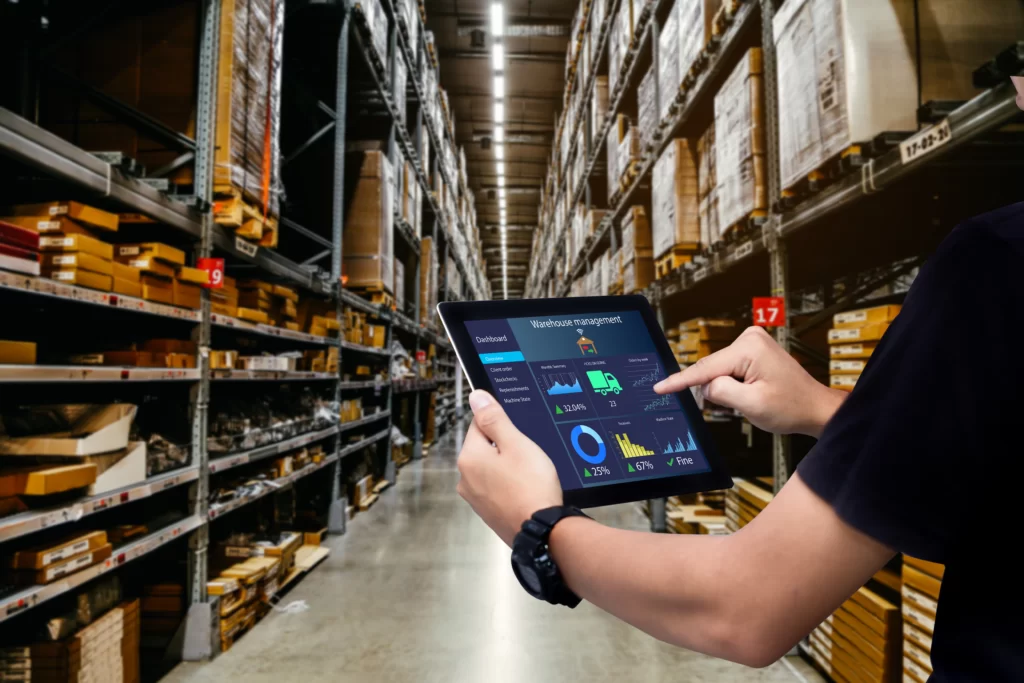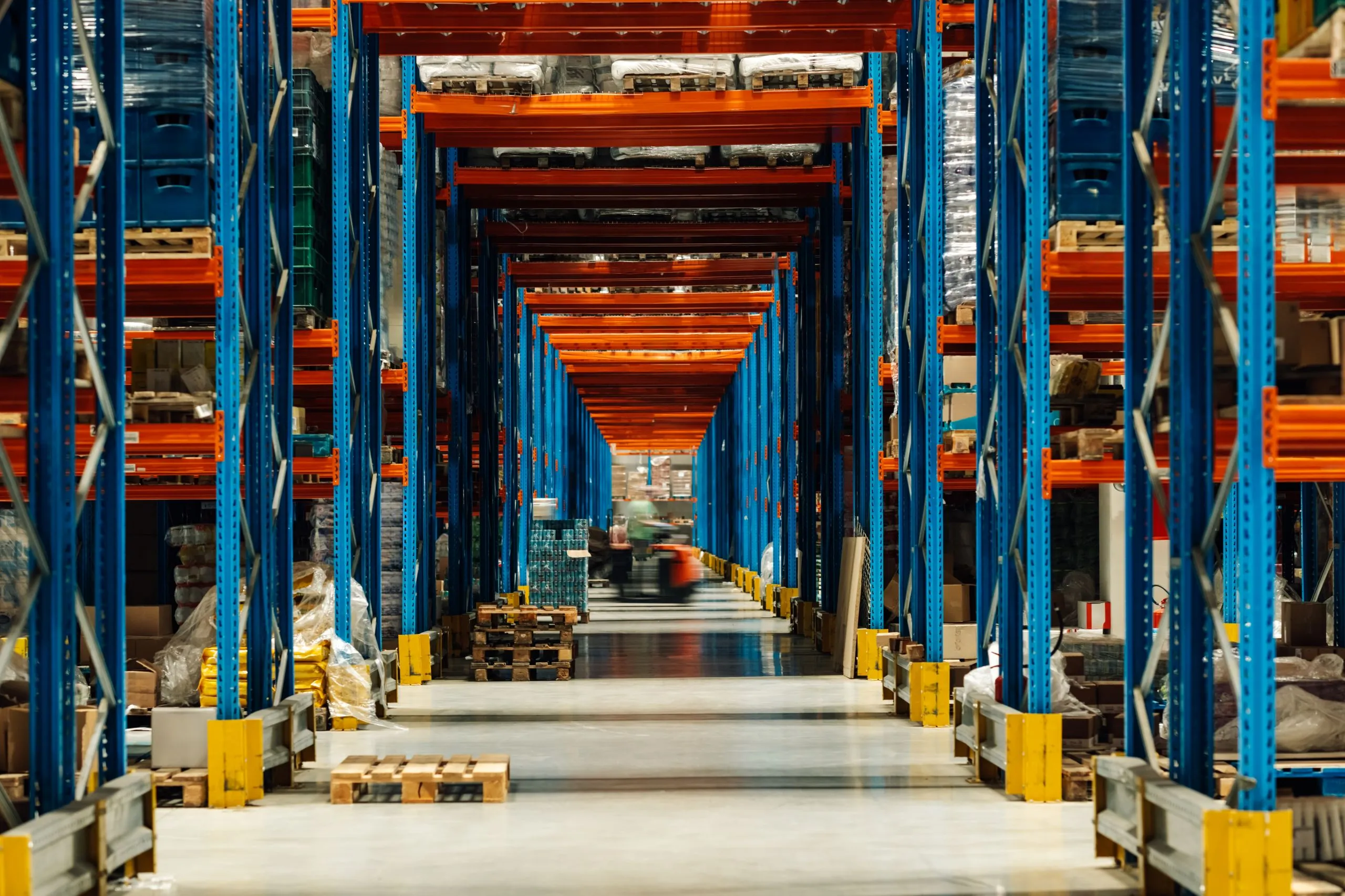For e-commerce businesses, warehousing refers to the process and physical space used to securely and systematically store product inventory for businesses engaged in online retail activities. This storage process is crucial for fulfilling customer orders, ensuring fast shipping, and effectively managing inventory.
In general, the storage processes for e-commerce businesses include:
Inventory Management: Tracking the quantity and condition of products, and keeping stock levels up to date.
Order Processing: Receiving, processing, and preparing customer orders.
Packaging: Correctly packaging products and preparing them for shipping.
Warehouse Security: Ensuring the safety of products, minimizing the risk of theft and damage.
Logistics Planning: Collaborating with shipping companies to organize fast and reliable deliveries.
An effective storage process for e-commerce businesses enhances customer satisfaction, ensures fast deliveries, and strengthens the business’s competitive advantage. Therefore, optimizing storage processes and making logistics operations more efficient is critical for e-commerce businesses.
To optimize storage processes and reduce costs, e-commerce businesses often use specially designed fulfillment centers in addition to traditional storage systems.

What is a Fulfillment Center?
A fulfillment center is a storage and logistics facility specifically designed and optimized for e-commerce businesses. These centers are focused on efficiently processing customer orders and delivering products to customers quickly and effectively.
What is a Traditional Warehouse?
A traditional warehouse is a storage facility that typically operates using conventional methods, relying on manual processes with limited use of modern technology.
Some disadvantages of traditional warehouses for e-commerce businesses may include:
- Efficiency Issues: Traditional warehouse systems often rely on manual processes, which can result in low efficiency. This can lead to delays in order preparation, inventory tracking, and other logistical operations.
- Inventory Management Challenges: Traditional warehouses are more limited compared to modern inventory management systems, which can lead to difficulties in tracking stock and managing inventory.
- Error Rates: In traditional warehouse systems, where manual processes are prevalent, error rates can increase. Issues such as incorrect product shipments and inventory errors are more likely to occur.
- Difficulty Coping with Rapid Growth: E-commerce businesses often experience rapid growth. Traditional warehouses may face limitations in managing this fast growth and may struggle to maintain operational efficiency.
- Lack of Agility and Flexibility: Traditional warehouse systems are often lacking in flexibility. They may face limitations in adapting to mobility and various inventory management needs.
- Customer Dissatisfaction: The slow processes and errors in traditional warehouse systems can lead to customer dissatisfaction. Today’s customers expect fast and error-free deliveries.
E-commerce businesses often opt for modern fulfillment centers to overcome these disadvantages and run more efficient logistics operations. These centers leverage automation technologies and advanced logistics management systems, enabling them to operate more effectively and competitively.

Key Differences Between a Fulfillment Center and a Traditional Warehouse
- Optimized Processes: Fulfillment centers are designed to optimize processes from order receipt to packaging and shipping. Automation technologies are widely used to enhance efficiency.
- Inventory Management: Fulfillment centers are equipped with advanced systems for real-time inventory tracking and management, allowing businesses to have better control over their stock levels.
- Fast Order Processing: Fulfillment centers have the ability to process orders quickly, enabling faster delivery to customers, which in turn enhances customer satisfaction.
- Multiple Shipping Points: Fulfillment centers often have multiple shipping locations in different geographic regions to enable faster and more cost-effective delivery to customers. This allows for quicker and more affordable shipping options.
- Technological Infrastructure: Fulfillment centers possess a robust technological infrastructure, utilizing advanced IT and automation systems to monitor, manage, and optimize processes.
- Flexibility: Fulfillment centers offer the flexibility and scalability needed for businesses to adapt more effectively to changing demands and varying volumes of work.
Fulfillment centers are specialized facilities that help large-scale e-commerce businesses manage complex logistics processes more effectively.
What are the advantages of working with a Fulfillment Center for e-commerce businesses?
Fulfillment centers provide large-scale and effective logistics management for e-commerce businesses, enhance customer satisfaction, and optimize operational efficiency. These centers professionally manage all processes from order receipt to packaging and shipping, enabling businesses to effectively control their inventory and ensure fast and accurate deliveries to customers. Additionally, they offer scalability, allowing e-commerce businesses to handle more orders as they grow. Fulfillment centers help businesses manage logistical complexities, increasing customer satisfaction and providing a competitive advantage.
As one of Europe’s leading fulfillment service providers, we serve e-commerce businesses with 17 different fulfillment centers in Turkey, Europe, Saudi Arabia and Dubai. To learn more about our fulfillment services, you can fill out the contact form.





